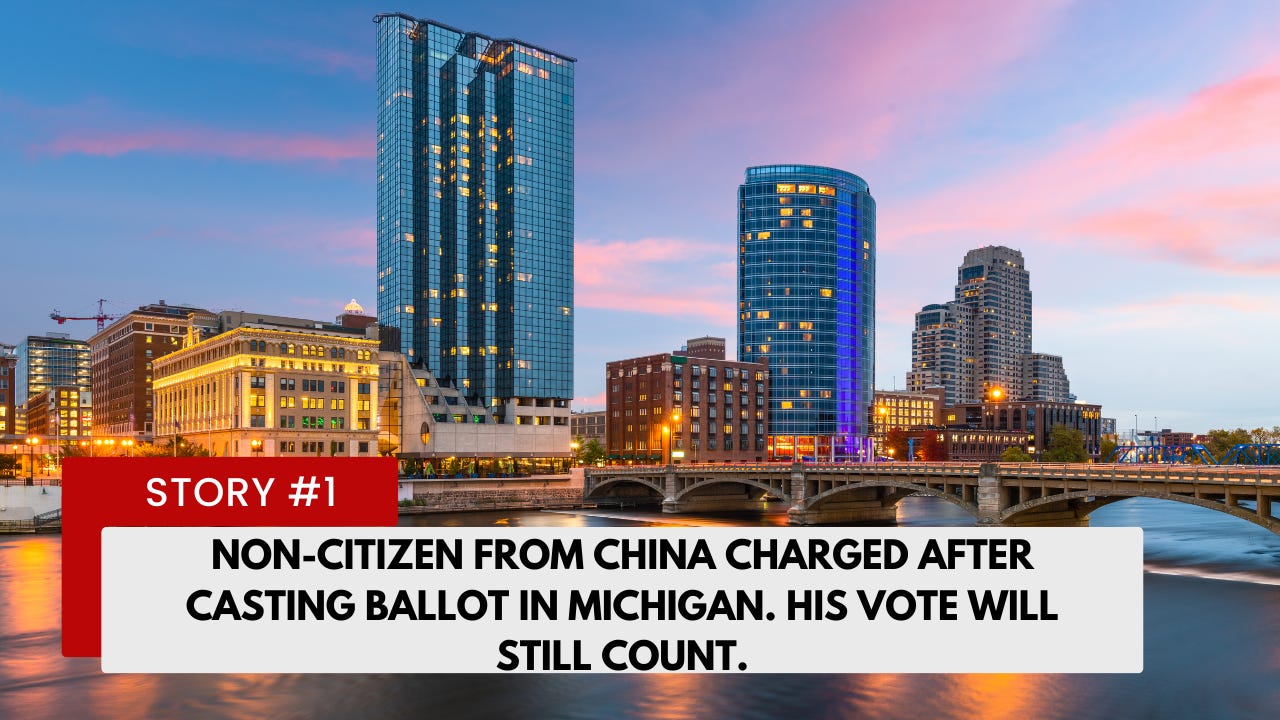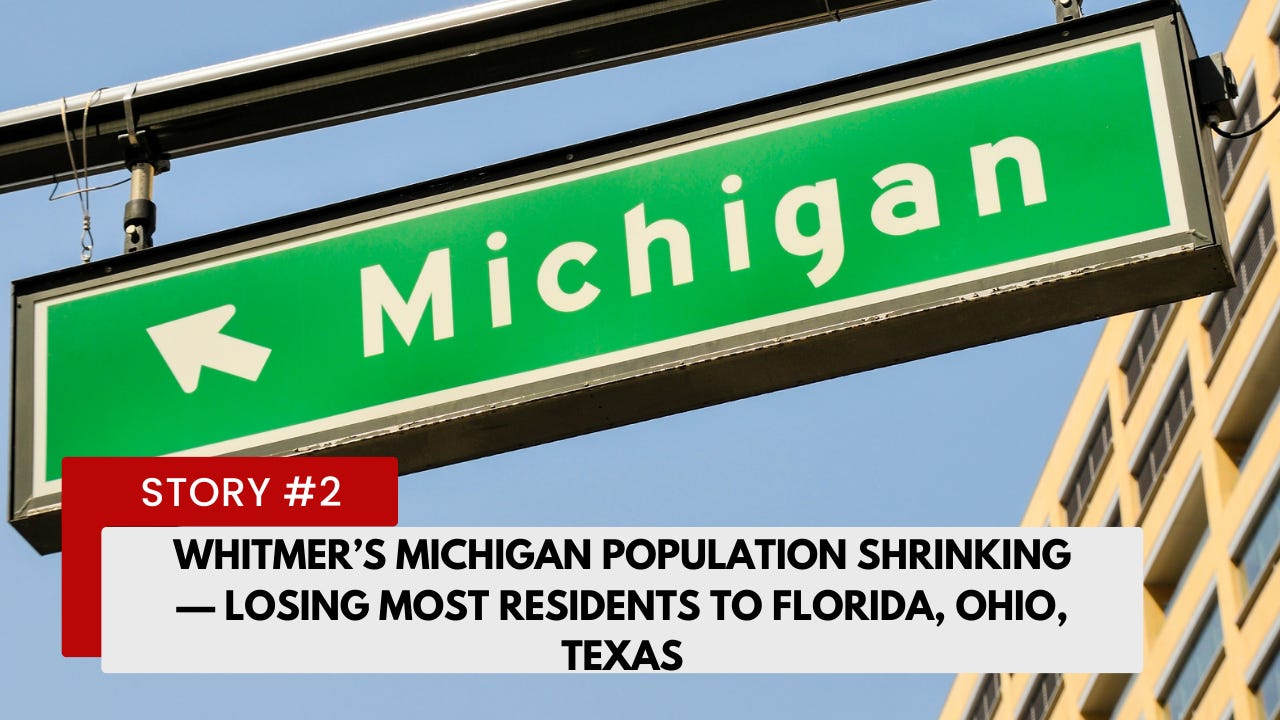

ANN ARBOR, Mich - A Chinese student at the University of Michigan was charged on Wednesday after he allegedly voted early on Sunday despite his non-citizen status, according to The Detroit News, which added that the Chinese national’s vote will still be counted.
Michigan Democratic Secretary of State Jocelyn Benson and the Washtenaw County Prosecutor’s office revealed two charges against the 19-year-old student, who was not identified, in a statement on Wednesday. While the Chinese national is in the U.S. legally with a Green Card, he is not a U.S. citizen, but according to the secretary of state’s office, the Chinese student successfully obtained a ballot and cast his vote at an early voting location.
The Chinese student reportedly contacted the local clerk’s office after voting and asked if he could get his ballot back. The Detroit News reported that “two sources familiar with Michigan election laws” said election officials cannot retrieve the illegally cast ballot after it went through a tabulator, a rule that prevents ballots from being tracked back to specific voters.
Michigan’s voter ID law allows people to show a current “student photo ID card from an educational institution.” The law also allows people to sign “an affidavit attesting that they are not in possession of photo identification.” Michigan is a vital battleground state in the upcoming election and has been a major focus of the campaigns of both former President Donald Trump and Vice President Kamala Harris. Click here to read more.

LANSING, Mich - The exodus from Michigan is accelerating, with more than twice as many moving out of the state on a net basis last year than in 2022, according to the most recent U.S. Census Bureau data.
Updated estimates from the bureau’s American Community Survey continue where a previous estimate through mid-2023 left off, illustrating that the pace of folks fleeing Michigan for other states increased through the latter half of the year.
In total, more than 155,000 left the Great Lakes States for somewhere better last year, a figure that’s 20,415 more than the number that moved in. Click here to read more.

NEW YORK, NY - More and more evidence is accumulating of the growing crisis in the European auto sector. There had been signs of trouble for a while, but it is the disruption caused by (and in anticipation of) the coerced “transition” to electric vehicles (EVs) that is now clearly threatening disaster to a sector that accounts for around 7 percent of the EU’s GDP. As many as 13 million jobs may be at risk.
The flow of bad news from automakers (in the U.S., as well as Europe) keeps on coming, but it is the European manufacturers who are in the most trouble for now, torn between what the regulators are demanding (more EVs), what consumers are buying (far fewer EVs than expected), and what Chinese carmakers are selling (EVs at a price low enough for buyers to overlook their flaws).
The fact that Volkswagen is in trouble is hardly a secret, but massive layoffs are now about to begin. Click here to read more.

GREENVILLE, Pa. (AP) — A 114-year-old Pennsylvania woman is now believed to be the oldest living person in North America.
Naomi Whitehead, who lives in a senior care community in Greenville West Salem, attained that status after Elizabeth Francis, of Texas, died on Oct. 22.
Whitehead, who said she never smoked or drank alcohol, was born in September 1910 on a farm in Georgia and has outlived her longtime husband and their three sons.
She has credited her longevity to good genes and enjoying various activities such as cooking, baking, drawing and listening to music.
Whitehead told the New Castle News in September 2023 that she hasn’t set a goal on how long she wants to live but noted, “I'll live as long as the Lord lets me.” Click here to read more.

ORANGE COUNTY, Calif. – What would you do with a $44 million lottery win?
Sitting around for weeks waiting to receive it probably isn’t high on your list.
That’s what one California man says has happened to him.
Jerry, whose last name wasn’t given, says he won the Powerball jackpot on Aug. 19 and hasn’t seen a single cent of it.
Lottery officials won’t comment on his specific case, but they said it’s common to take six to eight weeks – sometimes longer – to arrange payment.
That’s because winners go through a lengthy vetting process, which includes making sure they don’t owe back taxes or child support.
But for Jerry, it’s now been 10 weeks since he hit the jackpot.
“They won’t tell you, ‘By this date, you’ll get the funds.’ They won’t tell you that. They leave it open-ended, so you’re sitting, waiting daily, hoping when you’re going to get these funds,” Jerry told KABC.
For now, he’s still waiting for his life-changing payout.




















